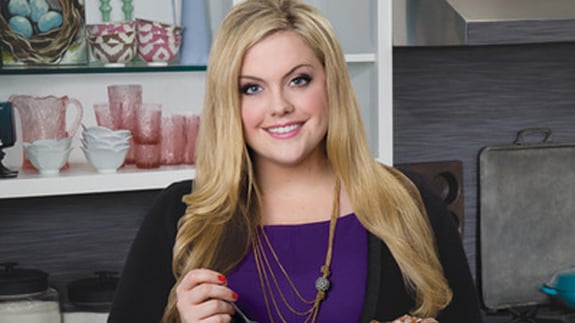With celebrity-chef and cooking shows popping up all over television, it’s harder and harder to tell who really originated that soufflé, or Mexican lasagna, or marinara sauce—whether it was Gordon Ramsay, Giada de Laurentiis, Rachael Ray, or whoever. Sometimes, it seems, one chef simply borrows from another. Following a report that the Food Network canceled Anne Thornton’s program, Dessert First, in part because she allegedly plagiarized recipes from Martha Stewart and Ina Garten, aspiring reality-TV chefs all over America are wondering how to draw the line between “inspired by” and “stolen from.”’
Which raises the issue: can recipes be patented? It’s a tough question, and the legal system doesn’t provide much in the way of satisfactory answers. In theory, the inventor of a recipe has created a piece of intellectual property that, like other “useful inventions,” can be patented. And the literary form in which the recipe is published is—again in theory—protected by copyright law.
But that’s in theory, and a chef could get burned going down the recipe-patenting road. In practice, it’s extremely difficult to patent a recipe, and the copyright in a published recipe is very easily circumvented by anyone who wants to republish it.
In order to patent a recipe, you have to be the inventor of a non-obvious improvement in the way a food is put together or made (that is, a novel improvement in the composition of ingredients and/or the process by which those ingredients are put together). This is a difficult standard to meet, especially in regard to the requirement that your invention be non-obvious. Inventing a genuinely new way to preserve bread would qualify; inventing a new way to make the flavor of garlic in your Spaghetti Bolognese more subtle wouldn’t.
An even bigger practical problem for those who dream of actually patenting their patented chocolate-chip cookies (leaving aside the sheer expense of the patent process is that, once a putative invention has been made public for more than a year, it no longer can be patented.

As for copyright, it’s a basic premise of our laws that ideas can’t be copyrighted. Thus it’s not possible to copyright either the ingredients in a recipe or the techniques for putting them together. What can be copyrighted is the particular literary form in which those ingredients and techniques are described. In other words, Ina Garten can’t copyright her recipe for lemon bars, if by “recipe” we mean what goes into the bars and how those ingredients are assembled.
What Garten does hold a copyright in is the particular description of how to make those lemon bars that she’s published. To copy and paste that description (or to reword it only slightly) would violate her copyright in the recipe; to redescribe that recipe in one’s own words would not. Passing off Garten’s recipe as one’s own certainly would be plagiarism in the ordinary sense of that word, but as long as one did not employ Garten’s own published description of the recipe, it would not be plagiarism in the meaning that word has within copyright law.
The real question in regard to these matters is not, at bottom, legal, but rather moral. Even though there almost certainly is no legal recourse available against someone who steals (again in the ordinary sense of that word) a published recipe by rewording it and passing it off as original, or, worse yet, publishes someone else’s unpublished recipe while claiming to be its creator, there is no reason not to—in fact, this is about social etiquette rather than criminal law—treat such actions as a form of theft.
Not surprisingly, the best advice regarding these matters comes not from lawyers, but from cooks. David Lebovitz makes the sensible suggestion that someone modifying a recipe should make it clear what the source of the adaptation was. If more creativity than mere modification is involved, then it’s often appropriate to note that the recipe was “inspired by” an already existing recipe. As Lebovitz implies, genuinely original recipes are rare, and it’s best to err on the side of caution—not primarily for legal reasons, but because a clear conscience makes for better digestion.
Bon appétit.





